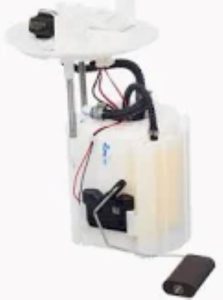Is a fuel pump repairable? Fuel pumps for the most part are “non-repairable”. Likewise, a fuel pump's internal parts such as motor and seals wear out sooner because they are constantly immersed in fuel being cooled by flowing fuel. Replacing a pump before it wears out costs more than the potential benefits of fixing a worn-out fuel pump, and fuel pumps are designed to last roughly 100,000 miles. In most cases, the fuel pump is the more reliable and more affordable option for many drivers, with average replacement costs ranging from $400–$800 depending on vehicle make and model.
And in the case of minor issues such as clogged filters or faulty wiring connections, these are typically problems associated with fuel system that can be fixed but have nothing directly to do with the pump itself. Mechanics are likely to try and fix the fuel pump relay or any electrical problems, however nearly all mechanical components concerning the pump itself will simply wear away by this point and cannot be saved.
General Motors experienced recalls exceeding 50,000 vehicles in 2014 that had faulty fuel pumps. These pumps were not fixable and had to be replaced or serious engine problems would occur. This incident reinforces manufacturers inclination to have a pump changed entirely when it malfunctions as opposed to fixing, due to the fact that too many parts in a working module layer are at risk once weakened.
The next question is about efficiency hence the third consideration. A weak fuel pump will generally fail to deliver any further than a few psi of the correct pressure range (usually 40 -55 PSI) needed for most vehicles. However, even in the event that a partial repair could be undertaken pulling down an otherwise perfectly good pump, it would likely not restore the pump to its fully capable pressure which could result in high levels of engine performance and poorer fuel efficiency with potential misfire. This results in a lower cost when compared to a full replacement but often the only way to assure future costs and problems.

Scotty Kilmer, the popular auto mechanic on Youtube said it best: “If your fuel pump is failing and acting up, better think twice about patching it up because many repairs won't last long. This is the advice of the industry at large, thanks in part to how much more complicated modern fuel pumps are.
So repair vs. replacement, is a decision that the pool owner must consider but it must be understood not only as an upfront financial choice. While at first seeing higher mileage, replacing a faulty pump can save you from pricier engine repairs in the long run. If you are looking for quality fuel pump choices, be sure to visit Fuel Pump and experience reliable, high performance pumps for better functionality for your vehicle.
